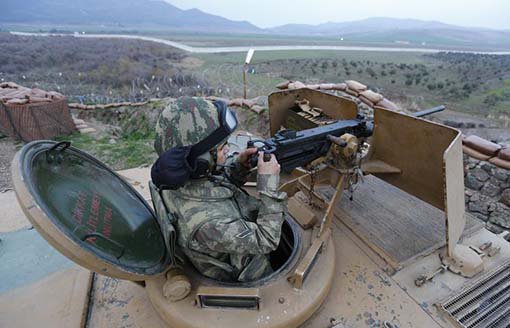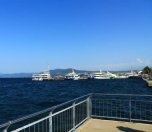‘Turkey Deports Those Fleeing Idlib’

Click to read the article in Turkish/Kurdish
Human Rights Watch has said Turkey has routinely intercepted hundreds, and at times thousands, of asylum seekers at the Turkey-Syria border since at least December 2017 and deported them to Idlib governorate in Syria, and urged the European Union to impose pressure on Turkey.
“The European Union should press Turkey to allow Syrian civilians fleeing fighting to seek protection inside Turkey and pledge increased aid to Syrian refugees in Turkey and the region”, the statement read.
Border guards of Turkey have shot at asylum seekers trying to enter Turkey using smuggling routes, killing and wounding them, and have deported to Idlib newly arrived Syrians in the Turkish town of Antakya, 30 kilometers from the Syrian border, according to Human Rights Watch.
“Thousands of Syrians are trapped”
“As border guards try to seal the last remaining gaps in Turkey’s border, hundreds of thousands of Syrians are trapped in fields to face the bombs on the Syrian side,” said Gerry Simpson, associate refugee rights program director at Human Rights Watch. “The EU should press Turkey to open its border to those in need, and provide meaningful support, not silently stand by as Turkey ignores refugee law and pushes thousands back to face the carnage.”
According to the UN, about 2.65 million people are currently in Idlib governorate, over 1.75 million of whom have been displaced from elsewhere in Idlib or other parts of Syria, including almost 400,000 displaced since December.
“Most people can’t afford tents”
A displaced Syrian interviewing Human Rights Watch said:
“The newly displaced said they had heard that displacement camps were completely full and that they could not afford to pay the extremely high rents in the towns and villages in the area. They ended up living in waterlogged fields across Idlib governorate, often with other families in makeshift tents made from sacks and other material sewed together, because they could not afford to buy proper tents.
“They said they struggled to find food and had to pay high fees for water, delivered by trucks. They either had seen no one from an aid agency, or those who had, said they were unable to help or had promised help but hadn’t returned”. (ŞA/TK)




